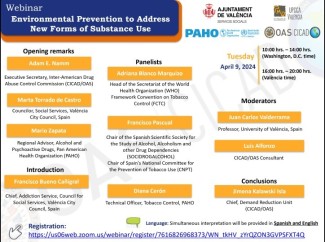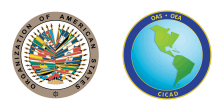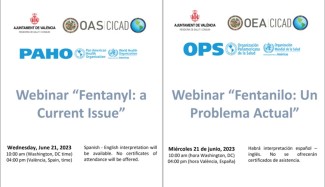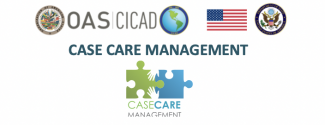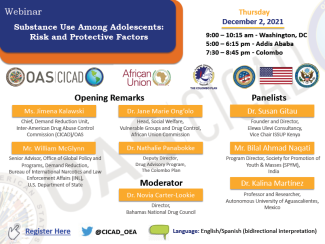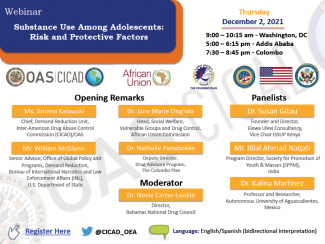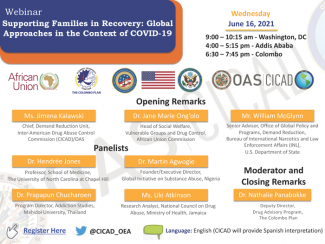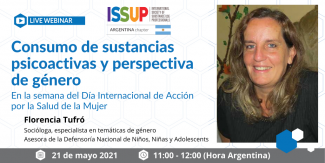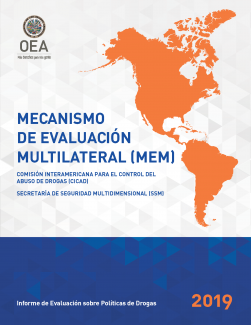Екологічна профілактика для вирішення нових форм вживання психоактивних речовин
Виконавчий секретаріат Міжамериканської комісії з контролю за зловживанням наркотиками (ES-CICAD), Панамериканської організації охорони здоров'я (PAHO) та Міської ради Валенсії, Іспанія, запрошують вас на цей вебінар на тему «Екологічна профілактика для вирішення нових форм вживання психоактивних речовин» у вівторок, 9 квітня, починаючи з 10:00 (за вашингтонським часом).
